Femia > Health Library > Your cycle > Sex > I had sex and then got my period – can I still be pregnant?
I had sex and then got my period – can I still be pregnant?
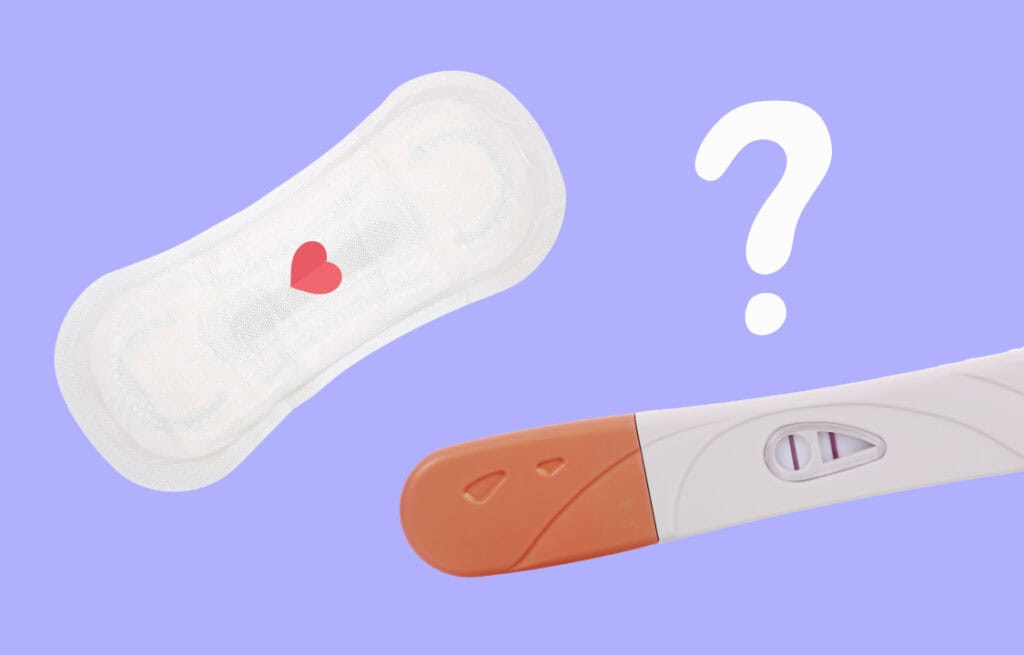
- Updated Feb 24, 2025
- Published
CRAFTED BY HUMAN
Crafted by human At Femia, we provide accurate and up-to-date information at every stage of your journey, from trying to conceive, pregnancy and postnatal support. All content is created by a real person based on in-depth research and own professional experience. Femia ensures that you will receive expert advice, strict accuracy and a personalized approach from our authors/medical experts. Learn more about our editorial policy.
FACT CHECKED
Fact checked At Femia Health, we maintain the highest standards of editorial excellence in delivering content focused on helping you conceive, guiding you through pregnancy, and supporting you postpartum. Explore our content review principles to learn how we ensure the accuracy and quality of our health and lifestyle tips for every stage of your journey.
- No, if you have had a true period since you last had sex, you’re not pregnant.
- While you cannot get your period if you’re pregnant, some women do experience bleeding or spotting during early pregnancy that might be mistaken for a period.
- If you have any concerns that you’re pregnant, even if you have had bleeding, then it is best to take a pregnancy test or speak to a healthcare provider.
Are you on your period but still wondering if you could be pregnant? Many women who are on their period or have just had their period still ask themselves if there is a chance that they could be pregnant.
Can I be pregnant if I got my period the next day?
No, if you have had a true period since you last had sex, you’re not pregnant. However, bleeding can occur during conception and pregnancy, which can sometimes be mistaken for a period.
A study of over 650 pregnant women found that one fifth (21%) of them had some vaginal bleeding before 20 weeks of pregnancy.
One type of bleeding that some women mistake for a period is called “implantation bleeding.” If implantation bleeding occurs around the time a period is due, it could be mistaken for a period.
👉Find out more: What are the chances of getting pregnant from precum while ovulating?
Can you get pregnant right after your period?
Yes, it is possible to get pregnant if you have sex during or right after your period, although the chances are probably low.
For those with shorter menstrual cycles, the likelihood is higher because ovulation can occur sooner. In another study, Wilcox found that, although rare, the fertile window can start from as early as day three of the menstrual cycle.
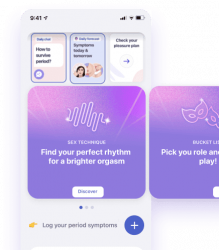
Unprotected sex before period: what are the chances?
It is possible to get pregnant if you have unprotected sex at any time during your menstrual cycle, including right before when you expect your period to start.
But for most women, the chances of getting pregnant at the very start or end of their cycle is usually extremely low. One study found that there is only a 2% chance of being in the fertile window on day 4 of the menstrual cycle and a 5% chance on day 21.
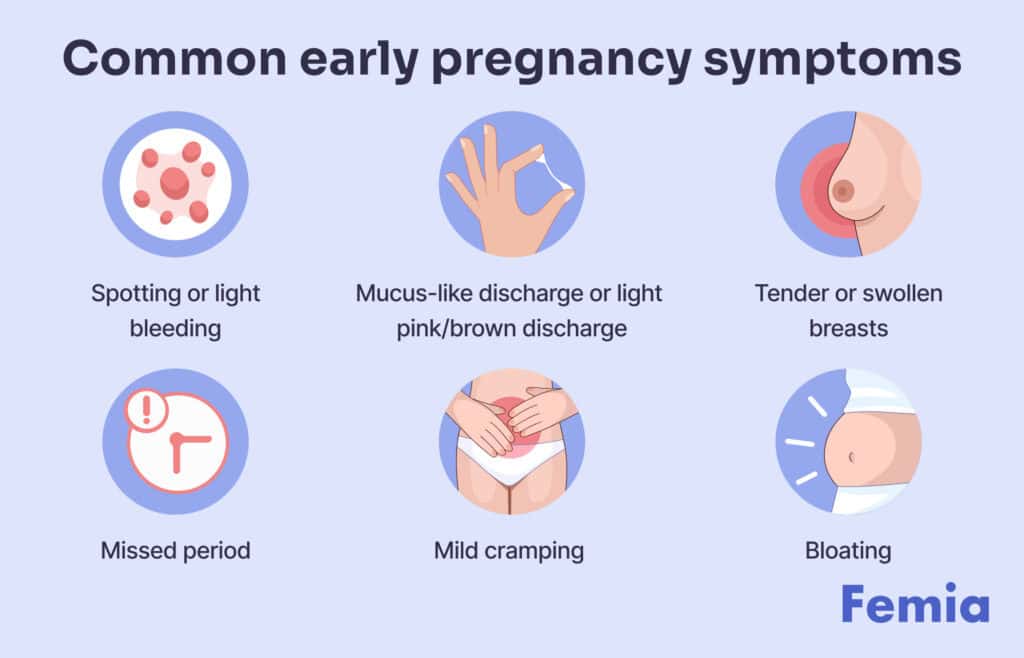
Can you be pregnant while on your period?
If you are having a true period, then you are not pregnant.
Bleeding during pregnancy is common; however, you will usually notice clear differences between this and your usual period bleeding. Implantation can cause light bleeding around the time that you expect your period and might be mistaken for a period, but it will not happen every month like a period does.
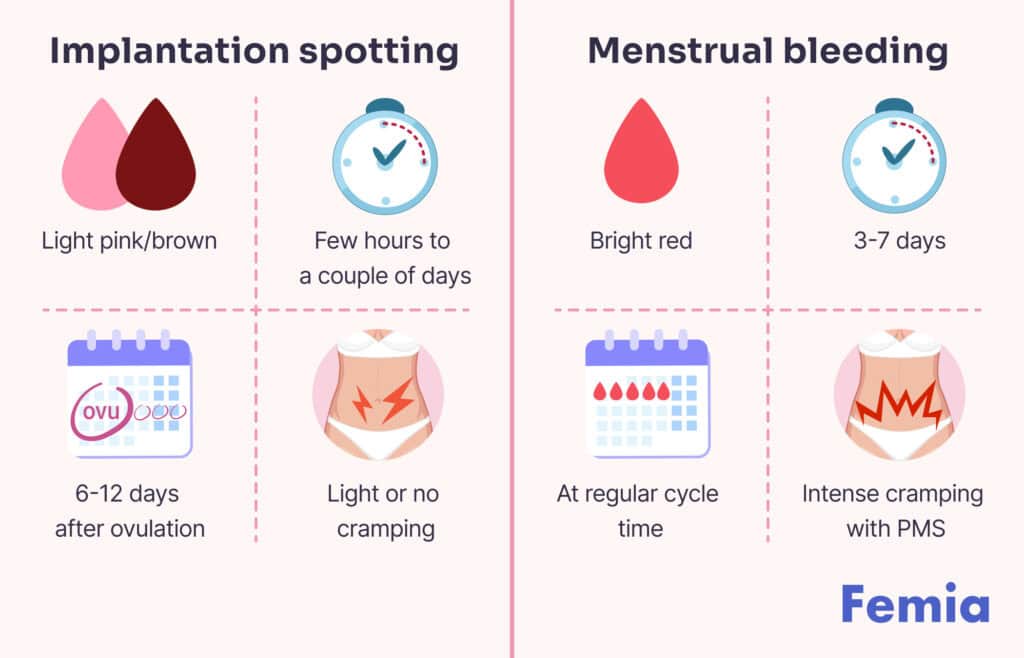
When to take a pregnancy test
Most pregnancy test brands advise you to take a test on the day that you have missed your period. If you have a regular 28-day cycle, then taking a test on this day will be fairly accurate.
Some brands are able to test for very low levels of hCG in the urine and can detect a positive result up to five days before a missed period; however, testing this early is much less accurate.
@femia.fertility Replying to @andrea Well, most likely you're not pregnant. #fertilityjourney #ttccommunity #getpregnant #pregnancy #ftm #canigetpregnant #periodproblems #periodtok #fertilityapp #learnontiktok ♬ original sound - Femia fertility app

Questions from the Femia community
How soon can I take a pregnancy test after having unprotected sex?
If you have regular cycles, then taking a pregnancy test on the day you miss a period will usually give an accurate result. If you are unsure when your period is due or have irregular cycles, then you should wait at least 21 days after having sex to take a test.
Is it possible to have regular periods during pregnancy?
No, it is not possible to have a regular period during pregnancy. However, some women may experience bleeding during pregnancy that they mistake for a period. Cyclical bleeding in pregnancy that resembles a period is extremely rare.
What are the early signs of pregnancy that I should look out for?
Early pregnancy is different for everyone. Not everyone will experience the same symptoms, but below are the most common early signs of pregnancy:
• A missed or lighter period: For women with regular cycles, the first sign of pregnancy is usually missing a period. Spotting or light bleeding due to implantation may also be mistaken for a period.
• Feeling sick: Being sick, or feeling sick, is called “morning sickness” and usually starts when you are around four to six weeks pregnant.
• Feeling tired: Hormonal changes in early pregnancy can make you feel tired or exhausted.
• Sore breasts: Your breasts may become larger and feel sore during early pregnancy. You can also experience a change in the color of your nipples.
• Needing to pee more: Some women find that they need to pee more, including during the night, in early pregnancy.
The bottom line
Being pregnant even if you’ve gotten your period is a concern that many women have at one time or another.
So, whilst it is not possible to be pregnant if you have had a true period since having sex, it is possible to mistake bleeding in pregnancy for a period and, therefore, be pregnant even though you think you had your period. This may be more common for women who have long, short, or irregular cycles, as ovulation may occur earlier or later in the menstrual cycle than expected.
If you have any concerns that you might be pregnant, even if you think you have had a period or you have had a negative test, then it is important to discuss with your healthcare provider to see if you need any further tests.
References
- Department of Health & Human Services. “Menstrual Cycle.” Better Health Channel, www.betterhealth.vic.gov.au/health/conditionsandtreatments/menstrual-cycle#.
- Everett, C. “Incidence and Outcome of Bleeding Before the 20th Week of Pregnancy: Prospective Study From General Practice.” BMJ. British Medical Journal, vol. 315, no. 7099, July 1997, pp. 32–34. https://doi.org/10.1136/bmj.315.7099.32.
- Gnoth, C., and S. Johnson. “Strips of Hope: Accuracy of Home Pregnancy Tests and New Developments.” Thieme-Praxis-Report. Geburtshilfe Und Frauenheilkunde/Geburtshilfe Und Frauenheilkunde, vol. 74, no. 07, Aug. 2014, pp. 661–69. https://doi.org/10.1055/s-0034-1368589.
- Hasan, Reem, et al. “Patterns and Predictors of Vaginal Bleeding in the First Trimester of Pregnancy.” Annals of Epidemiology, vol. 20, no. 7, July 2010, pp. 524–31. https://doi.org/10.1016/j.annepidem.2010.02.006.
- Professional, Cleveland Clinic Medical. “Corpus Luteum.” Cleveland Clinic, my.clevelandclinic.org/health/body/21849-corpus-luteum.
- Stirnemann, Julien J., et al. “Day-specific Probabilities of Conception in Fertile Cycles Resulting in Spontaneous Pregnancies.” Human Reproduction, vol. 28, no. 4, Jan. 2013, pp. 1110–16. https://doi.org/10.1093/humrep/des449.
- Thiyagarajan, Dhanalakshmi K., et al. “Physiology, Menstrual Cycle.” StatPearls – NCBI Bookshelf, 24 Oct. 2022, www.ncbi.nlm.nih.gov/books/NBK500020.
- Website, Nhs. “Doing a Pregnancy Test.” nhs.uk, 11 Mar. 2024, www.nhs.uk/pregnancy/trying-for-a-baby/doing-a-pregnancy-test/#:~:text=When%20you%20can%20do%20a,before%20you%20miss%20a%20period.
- “Heavy Periods.” nhs.uk, 11 Mar. 2024, www.nhs.uk/conditions/heavy-periods.
- “Periods and fertility in the menstrual cycle.” nhs.uk, 20 May 2024, www.nhs.uk/conditions/periods/fertility-in-the-menstrual-cycle.
- “Signs and Symptoms of Pregnancy.” nhs.uk, 18 May 2023, www.nhs.uk/pregnancy/trying-for-a-baby/signs-and-symptoms-of-pregnancy.
- “Vaginal Bleeding in Pregnancy.” nhs.uk, 24 Apr. 2024, www.nhs.uk/pregnancy/related-conditions/common-symptoms/vaginal-bleeding.
- Wilcox, A. J. “The Timing of the ‘Fertile Window’ in the Menstrual Cycle: Day Specific Estimates From a Prospective Study.” BMJ. British Medical Journal, vol. 321, no. 7271, Nov. 2000, pp. 1259–62. https://doi.org/10.1136/bmj.321.7271.1259.
- Wilcox, Allen J., et al. “Timing of Sexual Intercourse in Relation to Ovulation — Effects on the Probability of Conception, Survival of the Pregnancy, and Sex of the Baby.” New England Journal of Medicine, vol. 333, no. 23, Dec. 1995, pp. 1517–21. https://doi.org/10.1056/nejm199512073332301.

Discover ways to enhance your sexual life after menopause through the physical changes you experience, while continuing to achieve fulfilling orgasms.

Can you take antidepressants while pregnant? Find an all-encompassing guide to antidepressants and pregnancy with risks, tips, safe options, and more.
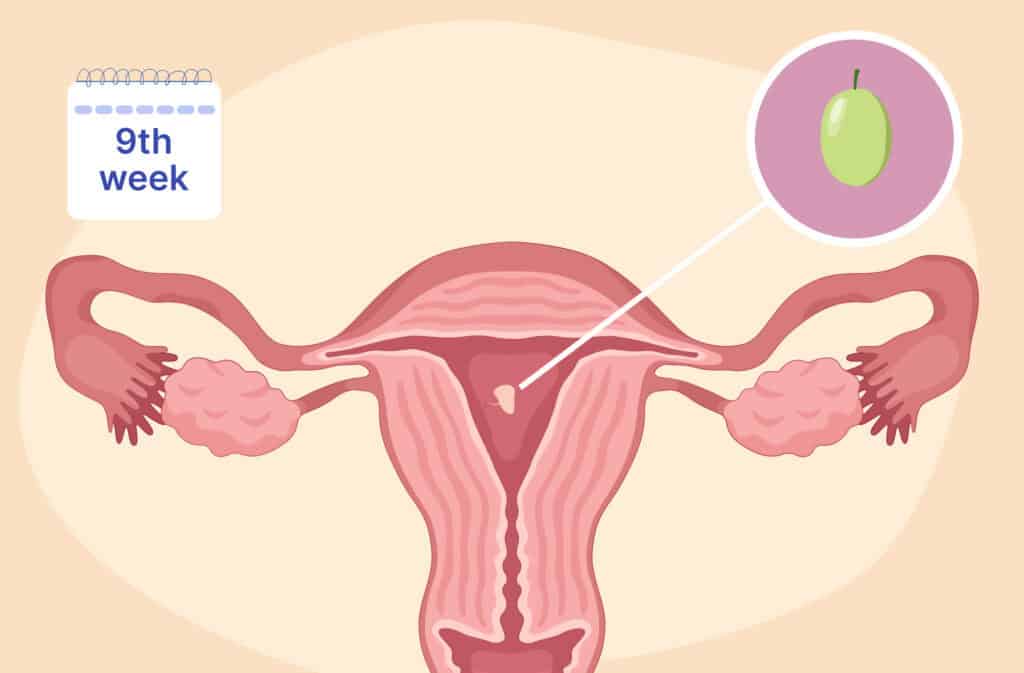
At 9 weeks pregnant, your baby is now moving and growing fast! Find out about symptoms, baby size, and how to care for yourself this week.

